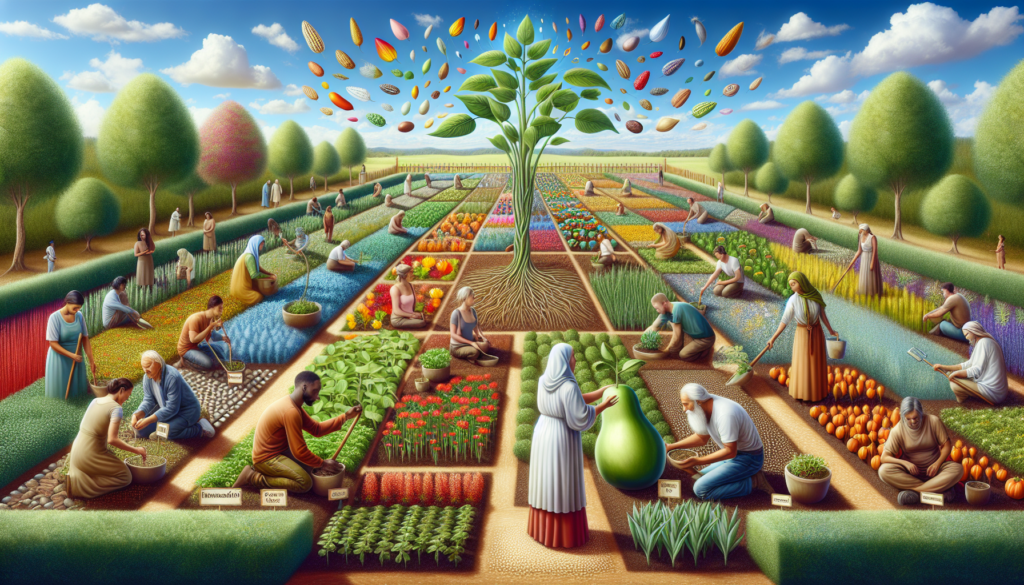Cultivating Gratitude: A Comprehensive Guide to Understanding and Practicing Gratitude
Introduction
Gratitude is a powerful emotion that can have a profound impact on our lives. When we practice gratitude, we shift our focus from what is lacking to what is present in our lives, fostering a sense of abundance and well-being. Cultivating gratitude involves recognizing and appreciating the good things we have, no matter how small they may seem.
Have you ever stopped to think about the things you are grateful for? In a world filled with challenges and negativity, it can be easy to overlook the positive aspects of our lives. But, by intentionally practicing gratitude, we can reframe our mindset and outlook, leading to increased happiness, resilience, and overall life satisfaction.
Research has shown that gratitude has a multitude of benefits, from improving mental health to enhancing relationships and even boosting physical health. In this comprehensive guide, we will delve into the various aspects of cultivating gratitude, exploring its history, benefits, techniques, and practical applications. Let’s embark on a journey to discover the transformative power of gratitude.
The History of Gratitude
Gratitude is not a new concept; in fact, it has been practiced for centuries across different cultures and religions. The ancient Greeks and Romans viewed gratitude as a virtue, essential for maintaining social bonds and fostering goodwill. In Eastern philosophies such as Buddhism and Hinduism, gratitude is seen as a key component of spiritual practice, promoting inner peace and contentment.
One of the earliest philosophical discussions of gratitude can be found in the writings of the Stoic philosophers, who believed that gratitude was essential for living a virtuous life. The Stoics emphasized the importance of accepting both the good and the bad in life with equanimity, recognizing that everything that happens serves a purpose in the grand scheme of things.
Fast forward to modern times, and we see a resurgence of interest in gratitude as a psychological concept. Researchers like Robert Emmons and Martin Seligman have conducted extensive studies on the effects of gratitude on well-being, highlighting its role in promoting positive emotions, reducing stress, and improving overall quality of life.
The Benefits of Gratitude
The practice of gratitude has been linked to a wide range of benefits for both mental and physical health. When we cultivate gratitude, we train our minds to focus on the positive aspects of our lives, leading to a greater sense of happiness and fulfillment. Research has shown that individuals who regularly practice gratitude experience lower levels of depression and anxiety, as well as higher levels of life satisfaction and overall well-being.
Gratitude has also been shown to improve relationships, as expressing appreciation and acknowledgment towards others can strengthen social bonds and foster a sense of connection. When we feel grateful towards others, we are more likely to engage in acts of kindness and generosity, creating a positive feedback loop of goodwill and reciprocity.
Furthermore, gratitude has been found to have a positive impact on physical health outcomes. Studies have shown that people who practice gratitude tend to have lower blood pressure, better immune function, and reduced inflammation in the body. By promoting a sense of calm and relaxation, gratitude can help mitigate the effects of stress on the body, leading to improved overall health and well-being.
Practical Tips for Cultivating Gratitude
So how can we cultivate gratitude in our daily lives? There are many simple yet effective practices that can help us develop a mindset of gratitude and appreciation. One of the most straightforward methods is to keep a gratitude journal, where you write down three things you are grateful for each day. This practice can help shift your focus towards the positive aspects of your life, no matter how small they may seem.
Another powerful way to cultivate gratitude is through acts of kindness and generosity towards others. When we engage in acts of service or charity, we not only benefit others but also experience a sense of fulfillment and gratitude for the ability to make a positive impact in the world. Whether it’s volunteering at a local shelter or simply helping a friend in need, small acts of kindness can go a long way in fostering gratitude.
Practicing mindfulness is another effective way to cultivate gratitude, as it encourages us to be present in the moment and appreciate the beauty and wonder of the world around us. By paying attention to our thoughts and feelings without judgment, we can cultivate a sense of gratitude for the simple joys in life, such as a beautiful sunset or a warm cup of tea.
Scientific Studies on Gratitude
Research in the field of positive psychology has shed light on the mechanisms underlying the benefits of gratitude. Studies have shown that practicing gratitude can lead to changes in the brain, specifically in areas associated with reward processing and emotional regulation. When we express gratitude, our brains release feel-good neurotransmitters like dopamine and serotonin, which are associated with feelings of happiness and well-being.
Furthermore, gratitude has been found to have a neurobiological basis, with imaging studies showing increased activity in the prefrontal cortex and other brain regions involved in processing emotions and social interactions. By cultivating gratitude, we can strengthen neural pathways associated with positive emotions and resilience, leading to lasting changes in our mindset and outlook on life.
One study conducted by researchers at the University of California, Davis found that individuals who kept a gratitude journal for just three weeks experienced significant improvements in overall well-being and life satisfaction. Participants reported feeling more optimistic, happier, and less stressed after engaging in the gratitude practice, highlighting the transformative power of gratitude on mental health.
Expert Opinions on Cultivating Gratitude
Experts in the fields of psychology, spirituality, and well-being have long extolled the virtues of gratitude as a practice for enhancing mental health and overall quality of life. Robert Emmons, a leading gratitude researcher, has emphasized the importance of gratitude as a key component of well-being, stating that “gratitude is the antidote to negative emotions like envy, anger, and resentment.”
Similarly, spiritual leaders like Thich Nhat Hanh have espoused the benefits of gratitude as a practice for cultivating inner peace and contentment. In his book “The Art of Living,” Thich Nhat Hanh writes, “If you are grateful, you are happy, and if you are happy, you become relaxed.” By cultivating a sense of gratitude, we can tap into a wellspring of joy and fulfillment that transcends external circumstances.
In a world filled with distractions and challenges, it can be easy to lose sight of the things we are grateful for. By intentionally cultivating gratitude in our daily lives, we can shift our focus towards the positive aspects of our lives, fostering a sense of abundance and well-being that can transform our outlook on life. As the saying goes, “Gratitude turns what we have into enough.”
Conclusion
In conclusion, cultivating gratitude is a practice that can have profound effects on our mental, emotional, and physical well-being. By recognizing and appreciating the good things in our lives, no matter how small they may seem, we can shift our mindset from lack to abundance, leading to increased happiness, resilience, and overall life satisfaction. The benefits of gratitude are backed by research and supported by experts in various fields, highlighting its transformative power on our lives.
As we journey through life, let us remember to pause and reflect on the things we are grateful for, whether it’s a kind gesture from a friend, a beautiful sunset, or a warm cup of tea. By cultivating gratitude in our daily lives, we can create a ripple effect of positivity and well-being that extends far beyond ourselves. So, let us embrace the practice of gratitude with open hearts and minds, knowing that it has the power to transform our lives in ways we never thought possible.
To wrap things up, let us remember the words of Melody Beattie: “Gratitude unlocks the fullness of life. It turns what we have into enough and more. It turns denial into acceptance, chaos into order, confusion into clarity. It can turn a meal into a feast, a house into a home, a stranger into a friend.”


